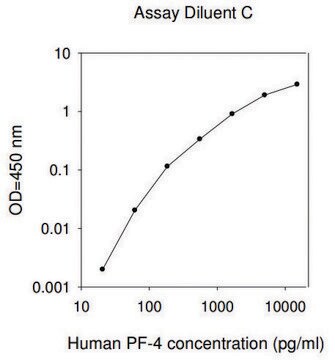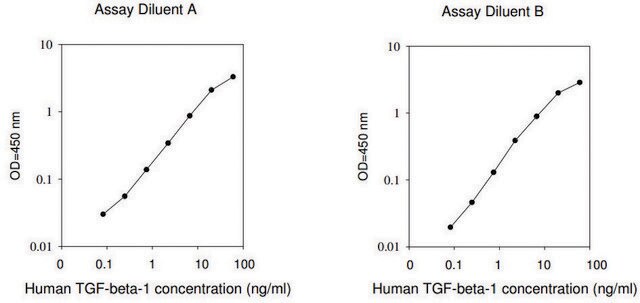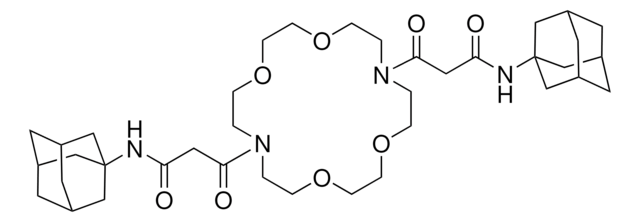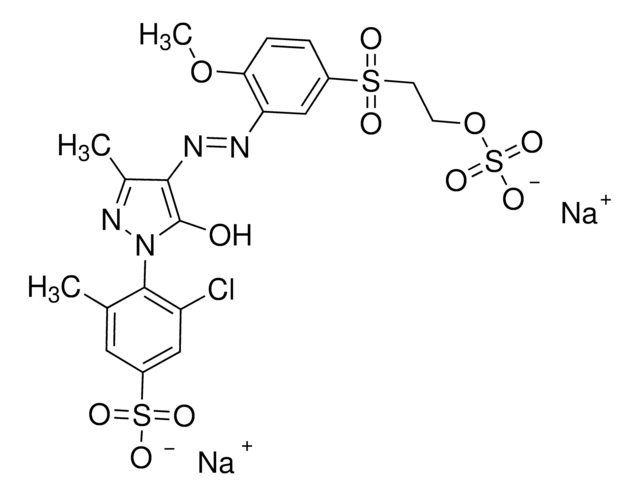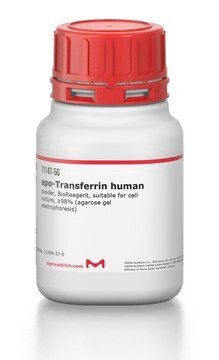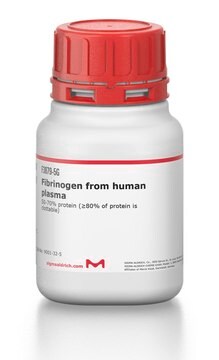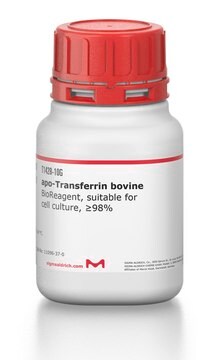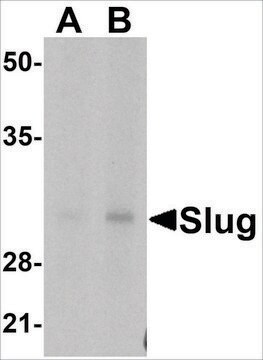RAB0747
Human TF / Serotransferrin ELISA Kit
Synonym(s):
Serotransferrin, TF, Transferrin
About This Item
Recommended Products
species reactivity
human
packaging
kit of 96 wells (12 strips x 8 wells)
technique(s)
ELISA: suitable
input
sample type cell culture supernatant(s)
sample type plasma
sample type serum
assay range
inter-assay cv: <12%
intra-assay cv: <10%
sensitivity: 1 ng/mL
standard curve range: 1.029-750 ng/mL
detection method
colorimetric
shipped in
wet ice
storage temp.
−20°C
Gene Information
human ... TF(7018)
Related Categories
General description
Application
Please refer to the attached General ELISA KIT Procedure (sandwich, competitive & Indirect ELISA)
Other Notes
Please type the word sample in the text box provided for lot number.
Signal Word
Warning
Hazard Statements
Precautionary Statements
Hazard Classifications
Met. Corr. 1
Storage Class Code
8A - Combustible, corrosive hazardous materials
WGK
WGK 3
Flash Point(F)
Not applicable
Flash Point(C)
Not applicable
Certificates of Analysis (COA)
Search for Certificates of Analysis (COA) by entering the products Lot/Batch Number. Lot and Batch Numbers can be found on a product’s label following the words ‘Lot’ or ‘Batch’.
Already Own This Product?
Find documentation for the products that you have recently purchased in the Document Library.
Our team of scientists has experience in all areas of research including Life Science, Material Science, Chemical Synthesis, Chromatography, Analytical and many others.
Contact Technical Service